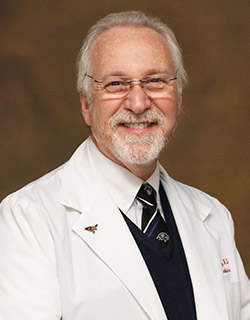Mental Health During the Holidays
December 18, 2019The subject of mental health comes up a lot around the holidays, but it’s an important part of your health all year long — almost one in five people in the United States will experience a major depressive episode at some point in their life. Anxiety and depression are common problems that affect both physical and emotional health. On this episode of Greater Living Live, Dr. Kevin Ferentz discussed the signs and symptoms of anxiety and depression and explained how they can be treated.
As a primary care physician, Dr. Ferentz is often the first person that patients see when they are experiencing a mental health problem. Many times, patients come to him with physical complaints like difficulty sleeping or sudden weight gain that they don’t realize are symptoms of a mental health disorder.
There is a diagnostic questionnaire that physicians use to identify the signs of depression in patients called the PHQ-9. If the patient is experiencing five or more of the symptoms every day for at least two weeks, he or she is considered to be clinically depressed. Those symptoms are:
- Depressed mood
- Having little pleasure or interest in doing things
- Sleep disturbance – sleeping too much, too little, at the wrong time, or waking up during the night
- Feeling tired and having little energy
- Feeling bad about yourself
- Trouble concentrating
- Change in appetite
- Feeling either sluggish or agitated and on edge
- Suicidal thoughts
Dr. Ferentz explained that people often balk at a mental health diagnosis and don’t want to be treated for it, especially if medication is suggested. They may be embarrassed and feel like they just need to push through it. He likened this mindset to telling someone with diabetes that “they need to pull themselves up by their bootstraps and get rid of their disease.” There is a stigma that depression or anxiety is a weakness when in fact, it’s just like any other disease. There is no shame in taking insulin and there should be no shame in taking an antidepressant.
He suggested that patients focus on their symptoms rather than labeling the diagnosis. “If I can give you a medication to help you with your sleep, you would take it, whether or not that’s an antidepressant doesn’t make a difference. Let me make your symptoms better,” he said. Dr. Ferentz also recommended that family and friends who are concerned about their loved one take this same perspective. “Show that you are there to support them and that you care about how this is affecting their life.”
A patient’s symptoms and family history can be used to predict what kind of medication may work best for him or her, but it’s not an exact science. There can be a trial and error period during which physicians work with the patient to find the most effective medication and dosage. Dr. Ferentz said that patients generally feel better within six weeks of starting their antidepressant.
During the interview, Dr. Ferentz also talked about the prevalence of suicide and how mental health treatment can prevent such tragedies from happening.






